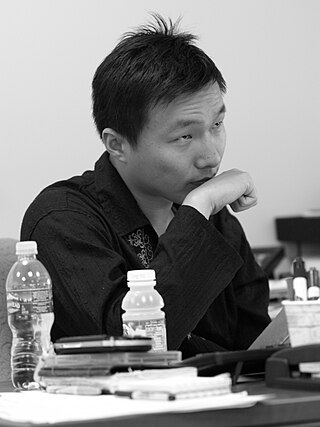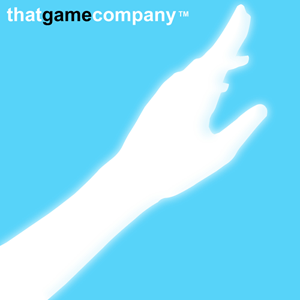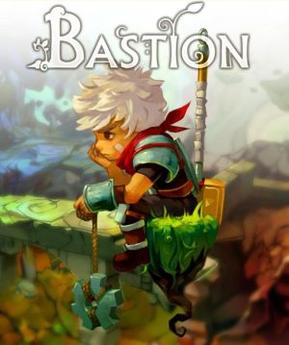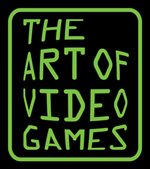
Yoichi Wada is a former president and representative director of the Japanese video game and publishing company Square Enix as well as its subsidiary Taito. He is also the former chairman of the Computer Entertainment Supplier's Association (CESA), the former chairman of the Digital Content Use Promotion Conference, former president of Shinra Technologies and a former member of the Japanese Brand and Contents Council. He is a current outside director of Metaps.
The University of Southern California's School of Cinematic Arts's Interactive Media & Games Division first accepted M.F.A. students in 2002. The division currently offers both undergraduate (B.A.) and graduate (M.F.A.) programs in interactive media and game design. The programs include courses in game design, development, audio, animation, and user research as well as experimental work in gestural and immersive interfaces, transmedia design, and interactive cinema.

Xinghan Chen, known professionally as Jenova Chen, is a Chinese video game designer. He is the designer of the award-winning games Cloud, Flow, Flower, and Journey, and is co-founder of Thatgamecompany.

Flow is an independent video game created by Jenova Chen and Nicholas Clark. Originally released as a free Flash game in 2006 to accompany Chen's master's thesis, it was reworked into a 2007 PlayStation 3 game by his development studio, Thatgamecompany, with assistance from Santa Monica Studio. SuperVillain Studios developed a PlayStation Portable version of the game in 2008, and PlayStation 4 and PlayStation Vita versions in 2013. In Flow, the player navigates a series of two-dimensional (2D) planes with an aquatic microorganism that evolves by consuming other microorganisms. The game's design is based on Chen's research into dynamic difficulty adjustment at the University of Southern California's Interactive Media Division, and on psychologist Mihaly Csikszentmihalyi's theoretical concept of mental immersion or flow.

Thatgamecompany, Inc. is an American independent video game development company founded by University of Southern California students Jenova Chen and Kellee Santiago in 2006. The company was a developer for Sony Computer Entertainment, contracted to create three downloadable games for the PlayStation 3's PlayStation Network service, and has since secured independent funding. The first of their games is a remake of Chen's award-winning Flash title Flow, with enhanced visuals and sound, added multiplayer modes and compatibility with the PlayStation 3's motion-sensitive controller. The title was released on the PlayStation Store in 2007. The company's second PlayStation 3 game, Flower, was released on the PlayStation Store in 2009, and their third game, Journey, was released in March 2012 on the PlayStation Store. Their fourth game, Sky: Children of the Light, was released in July 2019 on iOS and in April 2020 on Android. Later, it released on the Nintendo Switch in June 2021 and on PlayStation 4 in December 2022.

Sneak King is a stealth video game by Burger King for the Xbox and Xbox 360 video game consoles, released in 2006. Burger King sold the game with the purchase of value meals. Players take control of Burger King's mascot The King, in a stealth food-delivery themed game that spans four levels based on Burger King's commercial advertisements. Sneak King is one of three titles released by Burger King under the name King Games and developed by Blitz Games as part of five week promotional campaign between November 19 and December 24, 2006. Blitz Games was chosen to develop the games, originally for the online Xbox Live Arcade, but this was later changed to a single disc that would run the game on both the Xbox and Xbox 360 consoles.

Game Design Workshop is a book on game design by Tracy Fullerton, originally published by CMP Books in 2004. It has been updated and released in three subsequent editions, the latest by A K Peters/CRC Press in 2018.

Flower is a video game developed by Thatgamecompany and published by Sony Computer Entertainment. It was designed by Jenova Chen and Nicholas Clark and was released in February 2009 on the PlayStation 3, via the PlayStation Network. PlayStation 4 and PlayStation Vita versions of the game were ported by Bluepoint Games and released in November 2013. An iOS version was released in September 2017, and a Windows version was released in February 2019, both published by Annapurna Interactive. The game was intended as a "spiritual successor" to Flow, a previous title by Chen and Thatgamecompany. In Flower, the player controls the wind, blowing a flower petal through the air using the movement of the game controller. Flying close to flowers results in the player's petal being followed by other flower petals. Approaching flowers may also have side-effects on the game world, such as bringing vibrant color to previously dead fields or activating stationary wind turbines. The game features no text or dialogue, forming a narrative arc primarily through visual representation and emotional cues.

Kellee Santiago is a Venezuelan American video game designer and producer. She is the co-founder and former president of thatgamecompany. Santiago was born in Caracas, Venezuela, and raised in Richmond, Virginia, where Santiago played video games from a young age and was encouraged by her software engineer father to experiment with computers. While attending New York University's Tisch School of the Arts, she became active in experimental theater, planning to pursue it after earning a master's degree in the Interactive Media Program of the School of Cinematic Arts at the University of Southern California. However, Santiago became involved in video game design and produced Cloud, a game developed by Jenova Chen and a student team. Its success sparked her and Chen to found thatgamecompany upon graduating, and she became the president.

Journey is an indie adventure game developed by Thatgamecompany, published by Sony Computer Entertainment, and directed by Jenova Chen. It was released for the PlayStation 3 via PlayStation Network in March 2012 and ported to PlayStation 4 in July 2015. It was later ported to Windows in June 2019 and iOS in August 2019.

Bastion is an action role-playing video game developed by independent developer Supergiant Games and originally published in 2011 by Warner Bros. Interactive Entertainment. In the game, the player controls "the Kid" as he moves through floating, fantasy-themed environments and fights enemies of various types. It features a dynamic voiceover from a narrator, and is presented as a two-dimensional game with an isometric camera and a hand-painted, colorful art style. Bastion's story follows the Kid as he collects special shards of rock to power a structure, the Bastion, in the wake of an apocalyptic Calamity.

Robin Hunicke is an American video game designer and producer. She is a professor of game design at UC Santa Cruz and the co-founder of Funomena.

The Art of Video Games was an exhibition by the Smithsonian American Art Museum which was on display March 16–September 30, 2012. The exhibition was designed to highlight the evolution of art within the video game medium over its forty-year history. Following its time at the Smithsonian American Art Museum, the exhibition toured to 10 additional venues in the United States. Chris Melissinos, founder of Past Pixels and collector of video games and gaming systems, was the curator of the exhibition.
The Indie Fund is an organization created by several independent game developers to help fund budding indie video game development. The Indie Fund was created in early 2010, its purpose aimed "to encourage the next generation of game developers" by providing them funding for development of these games without the terms that would normally be associated with publication agreements.

Austin Wintory is an American composer for film and video games. He is known for scoring the video games Flow and Journey, which made history as the only video game soundtrack to be nominated for the Grammy Award for Best Score Soundtrack for Visual Media.
The Critical Path Project is a video archive of interviews with video game designers and developers.

Loved is a browser-based platform video game developed by Alexander Ocias, an Australian graphic designer and artist. Written in Adobe Flash, the game was built over the course of about half a year in Ocias' spare time. Released online on 14 June 2010 onto various game hosting websites, it has garnered sizeable praise and scrutiny since its release, with critics finding the game to be thought-provoking while having poor controls.

Sky: Children of the Light is an open world social indie adventure game developed and published by thatgamecompany. It was first released for iOS on July 18, 2019. An Android version was later released on April 7, 2020, and a Nintendo Switch version was released on June 29, 2021, followed by a PlayStation 4 release on December 6, 2022.

















